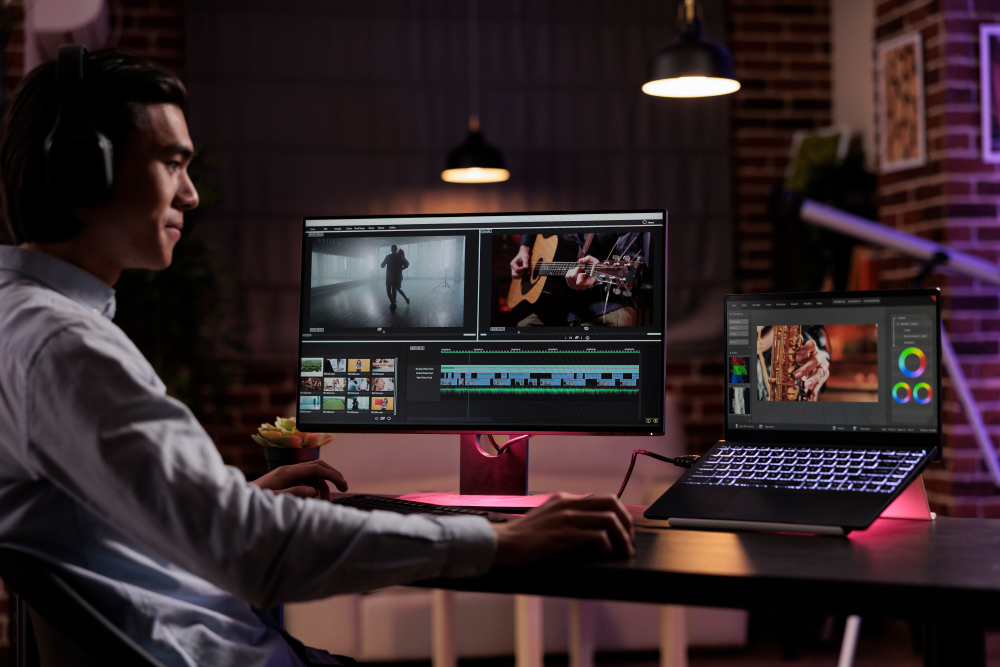Like many younger people entering the industry, I started out at a smaller local production company near where I grew up. I was reading industry magazines and watching videos of arena touring-level production, which is not what I walked into my first day at that job. Most of the gear wasn’t new and the events were mostly very simple from an audio perspective.
At the time I was disappointed, but looking back now, I realize there are some great opportunities that I got because of where I was working. Here are some of those opportunities.
Unlimited Shop Time
As a key carrying member of a small team, I could get unlimited time on any piece of gear we had. I could set up a console and start from scratch. Explore every menu, follow any video tutorial, and overall get really comfortable with every part of it.
I then expanded this into setting up an amp and a couple of loudspeakers to practice Smaart measurement and system tuning. Having the time to go slow and get it right made me quicker when I was at events. Understanding the gear so deeply made troubleshooting faster, and when I wasn’t able to figure something out, I made a note to recreate everything later and take another shot at it.
Doing Every Job
Bigger companies have sales people, design people, warehouse people, repair people, tech people, and so on, but with only three people, we did everything. I wasn’t just pushing and labeling boxes, I helped decide what went in the boxes, I packed them, put them on the truck, drove the truck, set up the equipment, and then was the tech running the event.
Understanding each part of the process really improved my empathy for each member of a big team. From the new shop person who doesn’t know where stuff goes to a show tech that is familiar to the client, I’ve done a bit of everything. Getting the experience of being a tech from early on allowed me to more quickly transition to being a freelancer, and I’ve been told, “You have a lot of experience for someone your age.”
Learning Other Departments
Coming into the job. I wanted primarily focus on audio, but my video skills were actually more in demand. While I still did audio (because everyone did everything) when there was PTZ cameras or live streaming involved, that part was assigned to me.
For smaller events, I learned to cover live audio, stream audio, and stream video switching by myself, so at that point, why not learn basic lighting? Part of what makes me valuable as a freelancer now is the fact that I can operate and troubleshoot equipment from different departments. Especially on smaller events, after audio is set up, being able to work with an HDMI converter while the video person is building macros help the day go smoother.
Figuring Out What You Want
I was fortunate that my first job had a little bit of everything. While it was mostly corporate work, there’s a definite difference between a college event and a ski resort business meeting – not to mention high school theater season, permanent system installations, and some theater-level music shows. Getting a feel for each of these different arenas helped me figure out what I was looking for when I moved on.
While I knew there were different types of live sound roles, there’s also a lot of adjacent aspects of the job I hadn’t thought about before.
Scheduling: How far out do I have my schedule? How flexible is time off?
Pay: Do I want to be paid hourly or salaried? (or somewhere in between) What’s a fair wage for someone of my experience and skill set?
Related jobs: I didn’t think about install work before. I also really liked the teaching part in working with high school students.
Overall, here’s my advice. Don’t set your expectations super high or try to move too quickly. On the rough days, remember you won’t be here forever, and on the best days think about what part you’re enjoying. Take time to appreciate where you are and take advantage of the current situation as much as you can.















